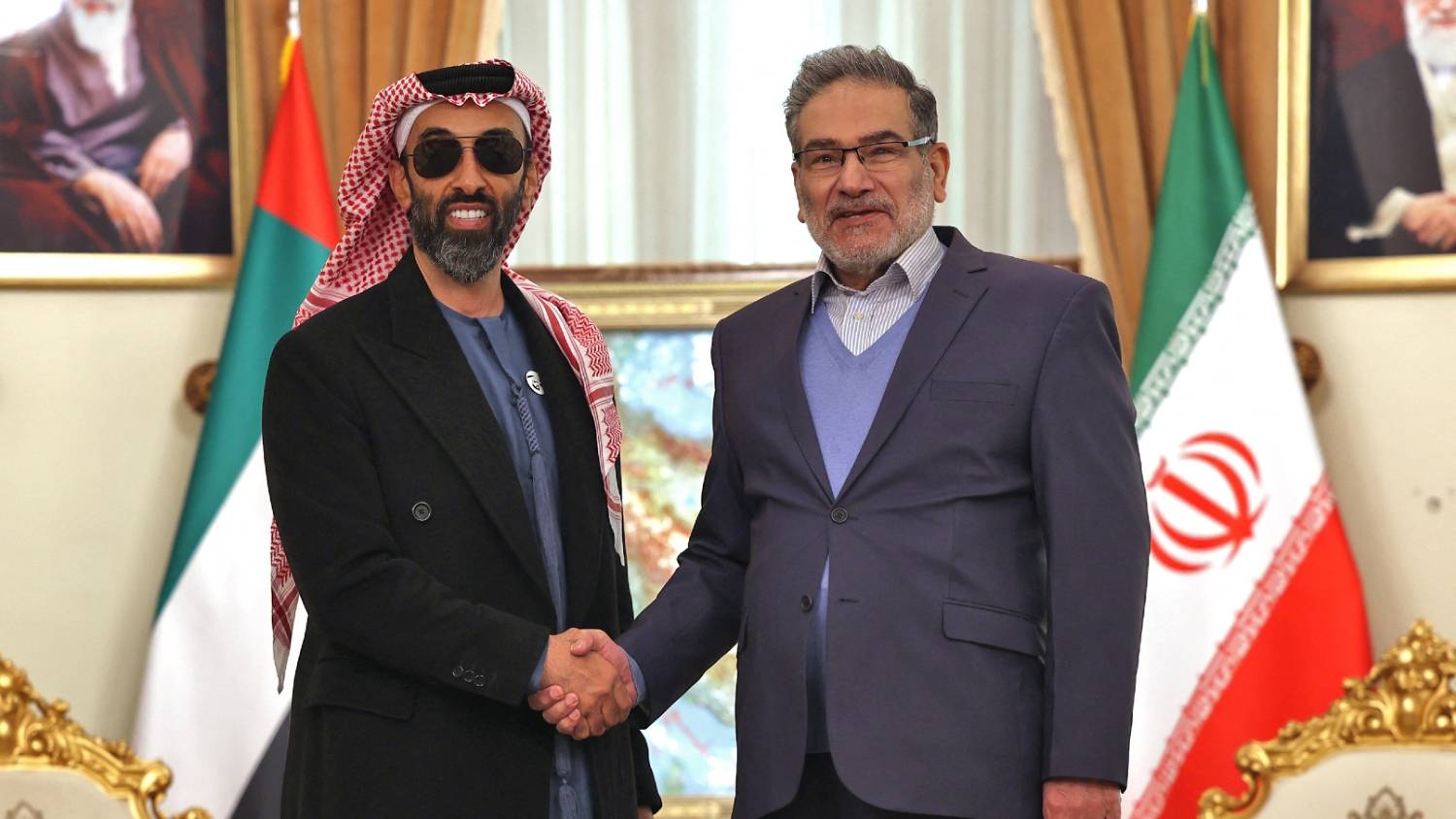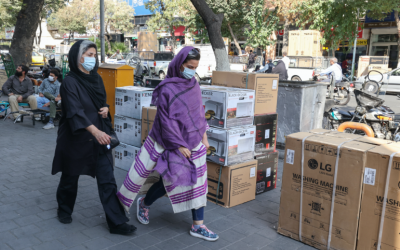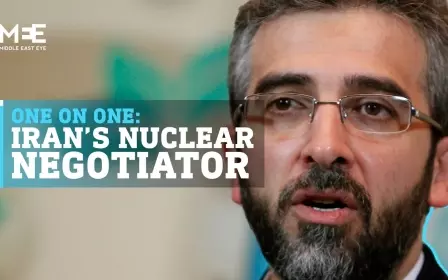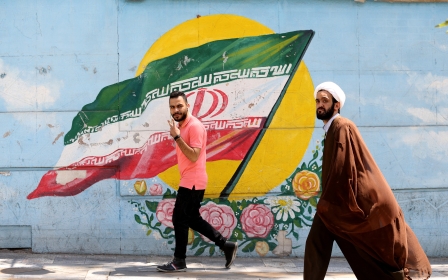Israeli press review: Officials worried about new Iran-UAE axis

Abu Dhabi-Tehran axis?
Warming ties between the United Arab Emirates and Iran are "worrying" and "not acceptable" for Israel, which signed a US-led normalisation deal with the UAE in September 2020.
"[UAE] parallel rapprochement with Iran and Israel is not acceptable," a senior security official told the Yedioth Ahronoth newspaper on Tuesday.
The remarks stemmed from a high-ranking visit by Tahnoun bin Zayed al-Nahyan, the UAE's national security adviser, to Tehran on Monday to meet Ali Shamkhani, secretary of Iran's Supreme National Security Council.
New MEE newsletter: Jerusalem Dispatch
Sign up to get the latest insights and analysis on Israel-Palestine, alongside Turkey Unpacked and other MEE newsletters
The visit to Israel's number one enemy in the Middle East has alarmed officials in Tel Aviv. A tripartite economic cooperation deal between Turkey, UAE and Iran had preceded the visit last month.
According to the agreement, goods from the UAE will be transported through an Iranian overland corridor north of Turkey and then to Europe. The new route is estimated to cut transporting goods to Europe by almost a week instead of 20 days shipping through Egypt's Suez Canal.
"At a time when thousands of Israelis visit the UAE and are welcomed with open arms, Iranian presence [there] might be dangerous. Israel is keeping its eyes open to the new axis between Abu Dhabi and Tehran," the Israeli official said.
Yedioth Ahronoth said that Tahnoun has visited Israel numerous times and met with Israel's former spy chief Yossi Cohen, and despite the rapprochement with Tehran, "warm relations prevail" between the two countries.
However, the official warned that if the door was made wide open between Tehran and the UAE, "this whole story may change for the worse".
'American weakness'
The shift in recent weeks in UAE's diplomatic modus operandi towards Turkey and Iran, according to Emirati officials quoted by Yedioth Ahronoth, is the United States policy shift to focus on the South China Sea region and Central Asia.
Officials speaking to Israel Hayom said that the Emiratis were sensing an "American weakness" in the White House and that normalisation deals were made possible in the summer of 2020 because the US "was strong and could be trusted".
They have added that the Emiratis were copying from the Qataris' diplomatic book on managing ties in a heated region such as the Middle East by keeping a warm channel with the US, forging a relationship with Iran, Turkey and Israel and other political groups.
Last week, former prime minister Benjamin Netanyahu said that the Emiratis were starting to move towards Tehran as they felt a US "weakness".
"They feel that there was a change in Washington and there was a change in Jerusalem. The breakthrough between the Gulf states and Israel is in danger," he said.
In November, Anwar Gargash, the diplomatic adviser to Abu Dhabi ruler Mohammed bin Zayed, said that his country "is taking steps to calm tension with Iran within the framework of a political option that supports diplomacy and avoids confrontation".
"Abu Dhabi is taking steps to calm down, as it has no interest in the confrontation that the whole region will pay for over the coming decades," he added.
The Maariv newspaper has called UAE's thawing of ties with Iran a "worrying flirtation", dubbing it a "diplomacy of smiles".
The ball in Iran's court
Israel fears that a US loosening of sanctions on Iran could end up with Tehran gaining billions of dollars to fund its proxies in the Middle East, adding more cash to its crude oil profits, and strengthening the Islamic Revolutionary Guards Corps (IRGC).
Israel's Minister of Defence Benny Gantz will fly to Washington this week to push the Americans to apply the maximum sanctions on Tehran, just as the talks between Iran and the P4+1 nations of Britain, France, China, Russia and Germany took a break before resuming next week.
Haaretz reported that some officials in Israel were recommending "a show of strength" by the Americans by attacking the Iran-backed militias in the region. However, the chances of the Americans embracing this recommendation looks slim.
Haaretz said Gantz and David Barnea, the chief of Mossad, would be received "with respect" in Washington this week. Still, the ball is in Iran's court, not Israel's, and the key to settling the nuclear issue is in the hands of Tehran, not Israel, and if the Iranians loosened their positions, an agreement would be signed.
Earlier this week, former prime minister Ehud Barak said that neither Israel nor the US has a "viable military plan" to strike Iran's nuclear programme.
Barak wrote in an op-ed in Yedioth Ahronoth that the US break from the 2015 nuclear agreement "was a delusional decision that allowed the Iranians to move forward quickly in the direction of becoming a nuclear threshold state".
Middle East Eye delivers independent and unrivalled coverage and analysis of the Middle East, North Africa and beyond. To learn more about republishing this content and the associated fees, please fill out this form. More about MEE can be found here.





